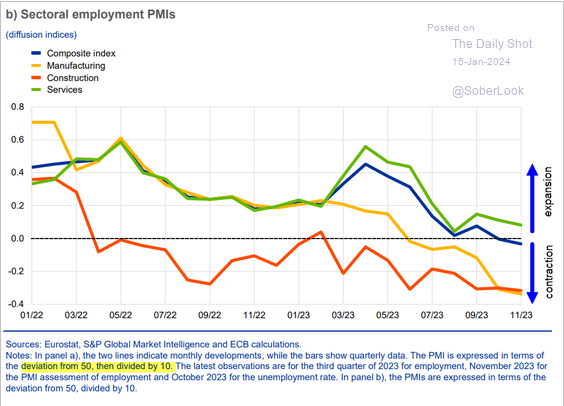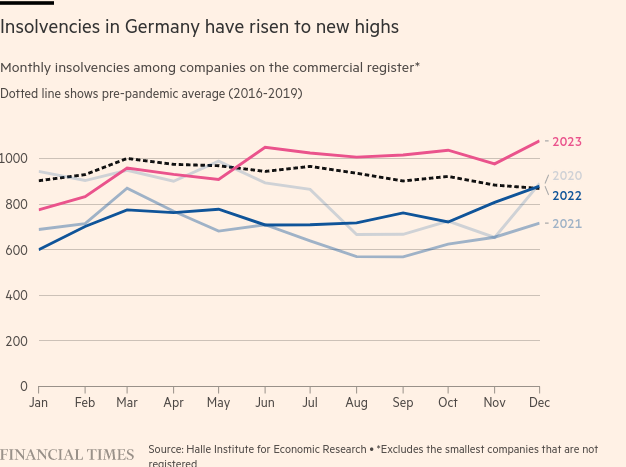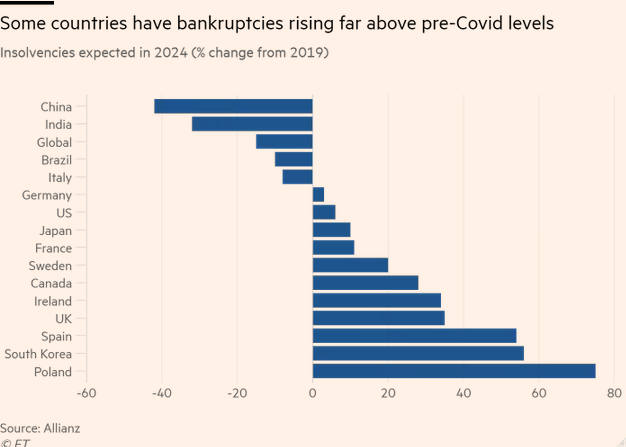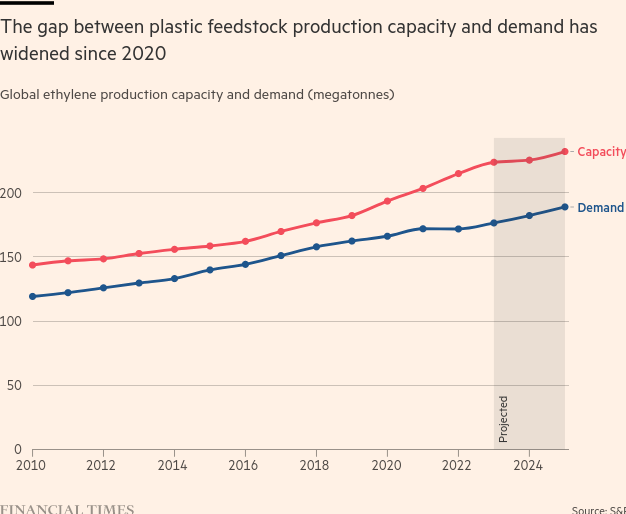January 15, 2024
European economy slowdown
- Germany's GDP contracted 0.3% and Italy's was also down in 2023
- German inflation hit 2.3% in November and 3.8 in December, but there has been little deflation meaning prices are still 20% above what they were pre-pandemic.
- German company insolvency is at a high risk as many below water companies expected to go bust grows to between 10 and 30%.
- Annual decline in Europe's factory output was 6.8% in November after a third consecutive month of declines.


Insolvencies were a prediction of last year that mostly did not reach the crisis levels some economists had predicted. However, they are still much higher than in the pre-pandemic period, but not as high as 2008 which seems to be the base-line of the use of the word "crisis" by the media. Such a high bar might be a problem in reporting what is actually going on.

Bankruptcies have been rising across much of the world, according to German insurer Allianz, which forecast a 6 per cent increase in global insolvency numbers last year and a 10 per cent rise this year.
Too much plastic
The world is creating too much plastic, driving down the price of new plastic, and driving more plastic into landfills.

Pre-2019 prices were such that recycled plastic was cheaper than new plastic. However, that is not the case now.
Only regulation will force companies to move to more sustainable packaging solutions. Cutting down on individual consumer use of plastics is not going to dent much use of plastic is driven at the upstream end of the supply chain.
New research shows what we all kind of knew about water in plastic bottles being full of micro-plastic, that microwaving anything in a plastic container instantly creates a plastic soup, and a 12% rise in cancers for the younger generation are starting to be blamed on the toxins we didn't know were toxins we have be exposing everyone to for 40 years.
The point? Producing more plastic is probably not a good thing for society.
And, plastic is set to join other oil products in the geopolitical fight against China.
- Europe: 14% in 2022, down from 20% in 2012
- China: 32% in 2022, up from 23% in 2012.
China used to import many of its plastics from the Middle East oil centres, but has established its own production capacity.
The World Economic Forum going on this week
The big issue?
The denizens Capital claimed it could mobilize in support of solutions to climate change. Very little has happened in that direction and almost none of it because of the jibber-jabber at the WEF. The question is now how are the world's elite capitalists going to change the channel so they continue to avoid any accountability, regulation, or taxation?
The answer is to focus on:
- Cyberattacks
- Cost of Living
- Supply chains/geopolitical risks
- Armed conflict/geopolitical risks
- El Niño
Yes, conflict and linking it to the broader economy is going to be the focus.
Also, John Kerry, the US climate envoy, is to step down in the next few months.